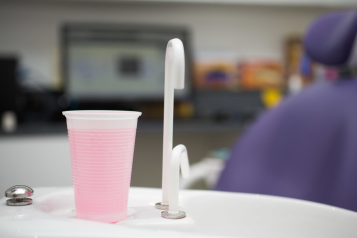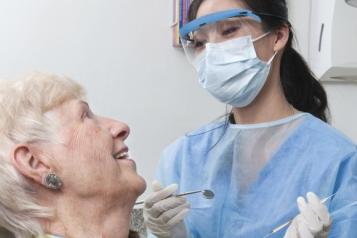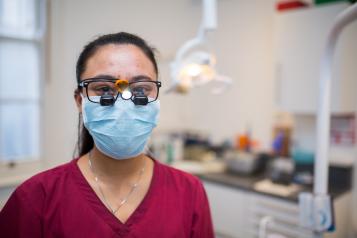Dentistry update February 2025
ICBs set individual targets on urgent dental appointments
Integrated care boards have been asked to delivered specific numbers of extra urgent dental appointments in a letter sent out by NHS England.
It’s the first piece of implementation guidance that has been issued since the government came to power last July about its election pledge to deliver an extra 700,000 urgent NHS dental appointments a year.
We received a briefing from the government yesterday about the plans, which informs our Q&A below.
What is new about this announcement?
ICBs have each been given their own target for delivering extra urgent appointments for the year starting 1 April 2025. These range from 2,740 for Coventry and Warwickshire ICB, to 57,559 for North East and North Cumbria ICB. Across the 42 ICBs they total 700,000.
How have these targets been set?
The NHSE letter sets out a three-stage formula, but in essence, they are using local data from the dental questions in the most recent annual GP Patient Survey on how many people tried and failed to get an NHS dental appointment, along with local performance on contract delivery.
Are ICBs getting new funding to deliver these?
No – the appointments will be funded from this year’s dental budget underspend. That total won’t be known until after the end of this financial year but as a guide, the 2023-24 underspend was £392m.
What counts as an urgent appointment?
ICBs will be receiving clinical guidance soon on definitions, but the DHSC said it doesn’t include patients needing dental checks before starting cancer treatment. Urgency is based on symptoms alone – such as significant pain, broken teeth, or serious infections.
How are ICBs expected to persuade dentists to deliver the extra urgent appointments?
No single national approach has been agreed - as there was for this year’s new patient payment that offered dentists extra funding to see people not seen on the NHS in the past two years (and which has failed to meet its goal and which will be scrapped next month). Instead ICBs will be expected to fund ‘more appointments through new or recommissioned contracts or modification of existing contracts’ or use ‘flexible commissioning’. NHSE will soon publish a national service and clinical specification to guide local commissioning approaches.
How will ICBs be measured on meeting their targets?
ICBs will be judged on how many extra urgent appointments they deliver over and above a baseline of all their urgent care activity delivered in the 12 months to June 2024. These figures are still being calculated and ICBs don’t have them yet. ICBs will have to submit plans to NHSE regional teams on how they'll deliver, and then report monthly on them during the year.
How mandatory are these targets?
Despite the language in the government’s announcement that health chiefs have been ‘directed to stand up thousands of urgent appointments’, the ICB targets are aspirations and meeting them will be dependent on the creativity of local commissioning schemes and the appetite of dentists to take up NHS work. There are no sanctions for ICBs not delivering the extra appointments over and above the usual oversight they face from NHSE of their performance.
However local Healthwatch may find it useful to the ICB targets to question commissioners about performance over the coming year.
What’s Healthwatch England’s position?
We told the DHSC we were concerned that patient expectations would be unrealistically raised by its announcement that ‘hundreds of thousands of people across England will soon be able to access urgent and emergency dental care’.
We also said more had to be done to ensure ICBs properly communicated to local communities how and when to find any new NHS urgent appointments, particularly as some of you had told us that some flexibly commissioned appointments had gone unfilled in some areas because of poor signposting by 111 or local practices.
Source: Healthwatch England February 2025


